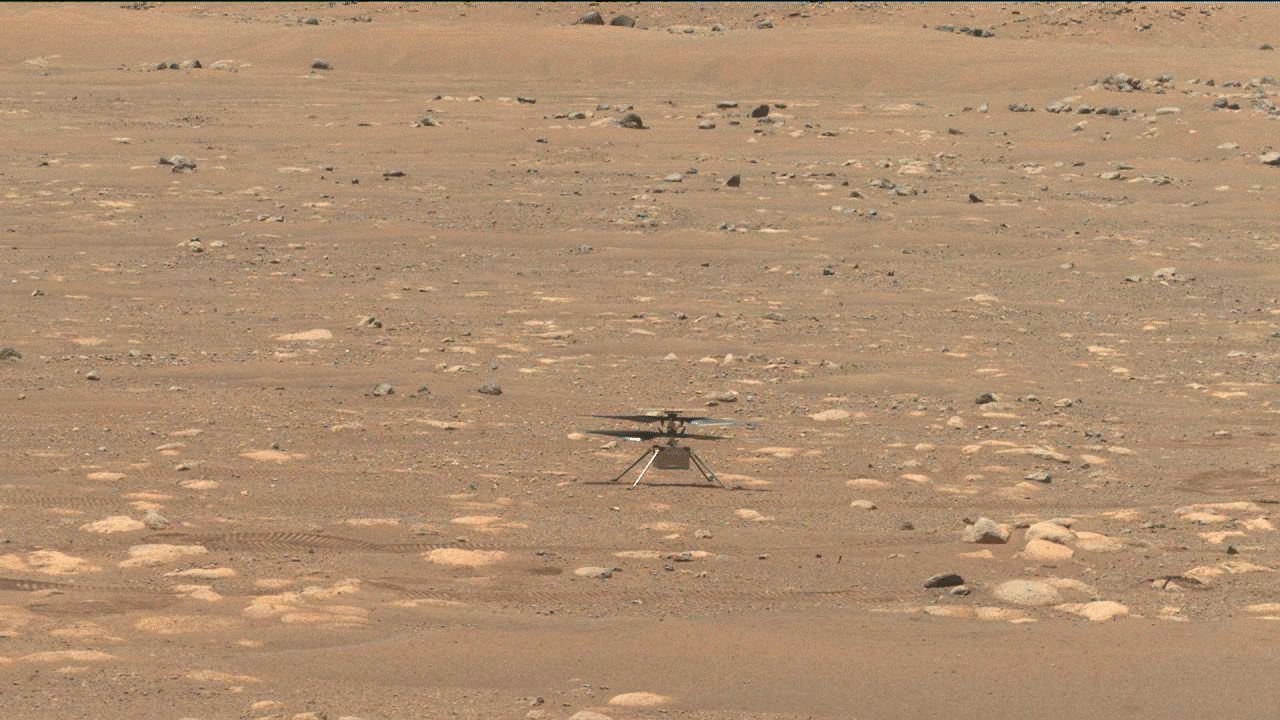Part of the Perseverance Rover mission that landed on Mars in February, the 1.8kg Ingenuity is aiming to become the first vehicle to achieve flight on another planet. The groundbreaking attempt was initially scheduled to take place on Sunday April 11, but issues during a high speed spin test of its rotors on Friday led NASA’s Jet Propulsion Laboratory (JPL) to postpone the debut flight. Ingenuity will now wait until at least Wednesday April 14 to attempt take off as the JPL team studies telemetry from the disrupted test.
NASA’s Perseverance Rover begins Mars adventure
Mars Perseverance: the technology behind the rover on a mission
“Based on data from the Ingenuity Mars helicopter that arrived late Friday night, NASA has chosen to reschedule the Ingenuity Mars Helicopter’s first experimental flight to no earlier than April 14,” the JPL said in a statement.

“During a high-speed spin test of the rotors on Friday, the command sequence controlling the test ended early due to a ‘watchdog’ timer expiration. This occurred as it was trying to transition the flight computer from ‘Pre-Flight’ to ‘Flight’ mode. The helicopter is safe and healthy and communicated its full telemetry set to Earth.”
Despite gravity on Mars being much weaker than on Earth, flight on the Red Planet is still extremely challenging, as the atmospheric pressure on Mars is just one per cent of Earth’s. The long delay in communications between the two planets also means Ingenuity must fly autonomously, using onboard guidance, navigation, and control systems.
“From day one of this project our team has had to overcome a wide array of seemingly insurmountable technical challenges,” said MiMi Aung, Ingenuity project manager at JPL.
“Mars is hard not only when you land, but when you try to take off from it and fly around, too. It has significantly less gravity, but less than one per cent the pressure of our atmosphere at its surface. Put those things together, and you have a vehicle that demands every input be right.”
If Ingenuity is successful, engineers will gain invaluable in-flight data from Mars for comparison to the modelling, simulations, and tests performed back on Earth, and NASA will also gain its first hands-on experience operating a rotorcraft remotely at Mars. According to the space agency, these datasets will be invaluable for potential future Mars missions that could enlist next-generation helicopters to add an aerial dimension to their explorations.





Collaboration to address viable solutions for VAWG database
<blockquote>address the lack of standardisation, coordination, and collaboration of gender disaggregated data intelligence across various regions,...